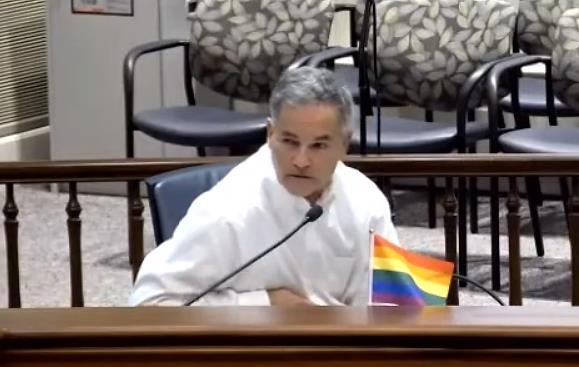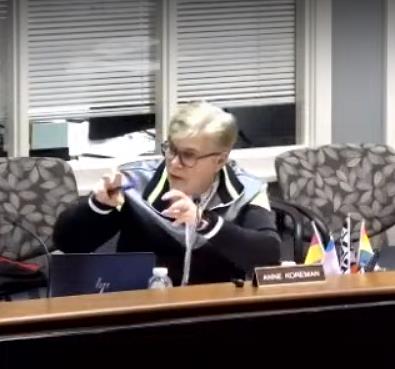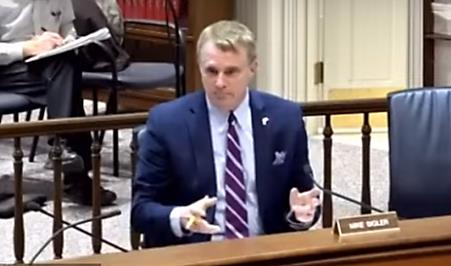Committee urges softer sell for Rapid Response buy-in
by Enfield Councilperson Robert Lynch; November 18, 2023
Safely sequestered in our Enfield Town Board meeting room, somebody this fall tossed out the question: If Tompkins County wants us to contribute toward a Rapid Medical Response System, its flycar network, how could they force us to pay? Unlike the State of New York or Uncle Sam, County Government, to our knowledge, holds no legal power of compulsion. We could just blow off the bills they’d send us. Let them sue us if they’d like, only to be laughed out of court.

But what Downtown’s now come up with, based on a Resolution that reached a County Legislature committee this week, is an attempt to persuade local towns like Enfield to negotiate a “Memorandum of Understanding” that would offer voluntary municipal consent for some sort of cost-sharing plan. Funding details would emerge from the talks, one presumes. There’d be a “We are all in this together” mindset, sort of like a campaign for the United Way or Public Radio. (Ignore the fact that we’d not be all in this together; more on that later.)
This newfound initiative toward heavy-handed moral-suasion preoccupied the Public Safety Committee’s Thursday meeting. And it had a tough time. Legislators debated it for some 35 minutes. I, an Enfield Councilperson, first argued that towns like ours are too broke to pay anything. Two separate amendments then weakened the Resolution’s scope and immediacy. And Enfield’s legislator on the Committee, Anne Koreman, voted against the whole proposal, neutered though it was.
“I feel like the negotiating strength of our County Administrator has essentially been gutted,” Chairman Rich John, the author of the pay-your-share Resolution, remarked after the two weakening amendments passed his committee, 3-2.
Nonetheless, John indicated that when the amended Resolution reaches the full Legislature within weeks, he will attempt to add back in the tougher language that his committee colleagues chose to strip out.
As envisioned by staff from Tompkins County’s Department of Emergency Response, and guaranteed initial funding in the County Legislature’s budget, what officials now describe as “Pilot Rapid Medical Response” or “PRMR” would position three, County-equipped and EMT-staffed emergency “flycar” SUV’s about Tompkins County during daytime, weekday hours. The emergency medical technicians onboard would respond to 911 calls when local fire department rescue squads, for lack of volunteer staff, could not do so. Enfield Fire Chief Greg Stevenson has cited understaffing as his department’s Number One shortcoming. Other fire departments have a similar problem. PRMR, it’s presumed, would fill in the gap. It’s a two-year pilot program. It could begin as soon as January.
When County lawmakers committed themselves to the flycar service during the budget process, they appropriated one-half of the expense as their own obligation, but left the other half to come from the Contingency Fund unless local towns chose to shoulder that burden.
“It does make sense to me that we do have some sort of cost-share that the residents of the county who are getting the principal benefit of this new service help to fund it in some measure more than other members of the community who are not seeing any benefit,” John told the committee.
Those who allegedly would not benefit from the service, John maintains, are City of Ithaca residents. As he sees it, paid Ithaca firefighters, who double as medical responders, amply serve them.
“This is inherently geographical,” John maintained. “If we were just looking at the City itself, we would never be having this discussion.”
Perhaps so; perhaps not. When pointedly asked by this Town Councilperson at an Enfield Town Board meeting in October, Michael Stitley, Director of Tompkins County’s Department of Emergency Response, confirmed that if summoned, PRMR cars would, indeed, respond to Ithaca City emergencies.
Rich John advanced a second argument behind his perceived need for a Memo of Understanding. It’s that if the County begins providing a free service, namely the flycars, and the towns don’t promise to keep providing what they already do, municipalities could cut their own rescue squad subsidies as a money-saving move.
“What I would really regret having,” John said, “is that the County starts funding this and various towns reduce their services as a way for them to save budget money and we don’t end up with a net improvement in the overall system, which is what we’re trying to accomplish.”
But cost-sharing, if imposed by either agreement or by edict, could impact town budget planners in a different way. In his public comment at the meeting’s start, this Councilperson, Robert Lynch, argued that many towns, including his, are “flat-broke,” and that if faced with a choice, Enfield might just choose to hire its own EMT to sit in Enfield’s own fire house, and use the Fire Company’s own flycar to answer Enfield calls.
Some cost-sharing funding models, advanced in late-September by the Department of Emergency Response, carried options that could charge towns as much as $58,000 annually to participate in PRMR.
“I want to get going on this,” Lansing’s Mike Sigler told the committee. He voiced concern that negotiating a Memo of Understanding with each and every Tompkins County town could take as long as four months to complete and would likely delay the system’s launch beyond January.
“If we start without a Memo of Understanding, we may never get one,” Rich John countered. “And what do we do then?”
But though he didn’t use the words, Sigler admitted that achieving municipal unanimity could be like herding cats.
“If Enfield’s out—I don’t know if they are (referencing this Councilperson’s concerns),” Sigler said; but then “Lansing seems to be more inclined,” then what? “It can’t be an all-Lansing share, either.”
Danby legislator Dan Klein did not attend Thursday’s meeting. But Chairman John said Klein had told him that based on Klein’s own conversations with “representatives of the various towns” there appears to be “some receptivity” to cost-sharing.
“There’s not in my district,” Anne Koreman quickly asserted. Not in Enfield, Ulysses, or Trumansburg, she said. “None of them are for contributing.” Koreman reported. “They think the County should do this. I haven’t heard any municipality that’s receptive to chipping in.”

As for Enfield, Koreman said, “They have the vehicle; they just don’t have the staff. They’re all volunteer.”
And as to Enfield’s cost, Koreman said, “For them to pay 50-60 Thousand Dollars is ridiculous when they could do it some other way.”
To Rich John’s argument that Ithaca City residents deserve a free pass on funding because their Fire Department serves them instead, Koreman drew an analogy to the Sheriff’s Department. City residents have the Ithaca Police Department. Some villages have their own police forces too. But coverage by Sheriff’s deputies is universally-shared. It isn’t apportioned town-by-town, with the City excluded, based on alternate services or on each community’s relative need.
Rich John suggested that Koreman had chosen a bad example, and for a few moments he broadened the discussion far beyond flycars to invite a much-wider debate.
“And I think there’s significant issues historically with exactly that,” Rich John answered Koreman regarding Sheriff’s services, the Fourth Ward legislator clearly laying claim to his Ithaca-based constituency. “City people are very resentful of paying county taxes for a Sheriff’s Department that historically hasn’t been doing patrols in the City; they don’t provide a benefit.”
Another argument, reserved for another day. Just beware it may happen.
At Sigler and Koreman’s request, the committee stripped from John’s Resolution a key paragraph that would have required the County Legislature to approve a (presumably completed) Memorandum of Understanding prior to commencement of PRMR’s flycar service. A second adopted amendment deleted prefatory clauses, each of which would have sought through negotiations to “allocate the financial burdens and system benefits of the PRMR to County residents on an equitable basis.”

Those deletions, according to Rich John, “gutted” what he had written. Expect him to move for their reinsertion when the Resolution reaches the full Legislature, likely sometime in December.
“If we’re giving something of value to other municipalities, which we are, substantial value, we should be clear of what we’re asking for in exchange,” the Chairman remarked at one point.
John’s transparently City-centric transactional statement, its underlying rationale readily apparent, can easily sting those in rural places like Enfield. Our residents are part of Tompkins County, not some poor relation to it tossed somewhere over the county line. We, the rural residents are being gifted nothing. Rather, we stand as recipients of a necessary community service, assigned intelligently as needs dictate.
“I think there’s a conversation that needs to take place amongst all the parties to determine what the level of services should be in their communities and what their long-term commitment is to achieving those,” Groton’s Lee Shurtleff remarked. He’d joined John in both supporting the core Resolution and in opposing the amendments perceived to weaken it.
And Shurtleff had a warning for towns that might not choose to contribute to an emergency medical service, either one run by the County, or by the municipalities themselves. There’s a move in Albany, the well-connected Shurtleff said, to define Emergency Medical Services as an “essential service;” something local governments—maybe the counties; maybe the towns—must provide, and of course, pay for at their own expense.
“They may be mandated to provide something that they’re not doing today,” Shurtleff warned the towns. “They’re not completely off the hook yet on this.”
[Note that this Councilperson’s complete statement to the Legislature’s Public Safety Committee on flycar funding is reprinted on this website under the Tab “Taking a Stand.”]
###

